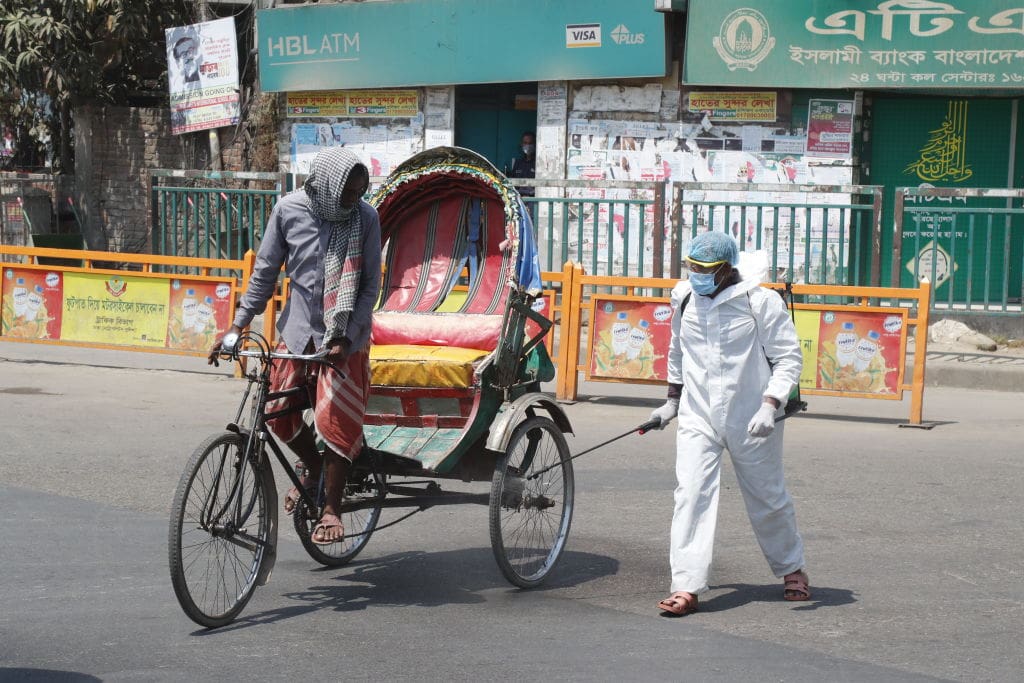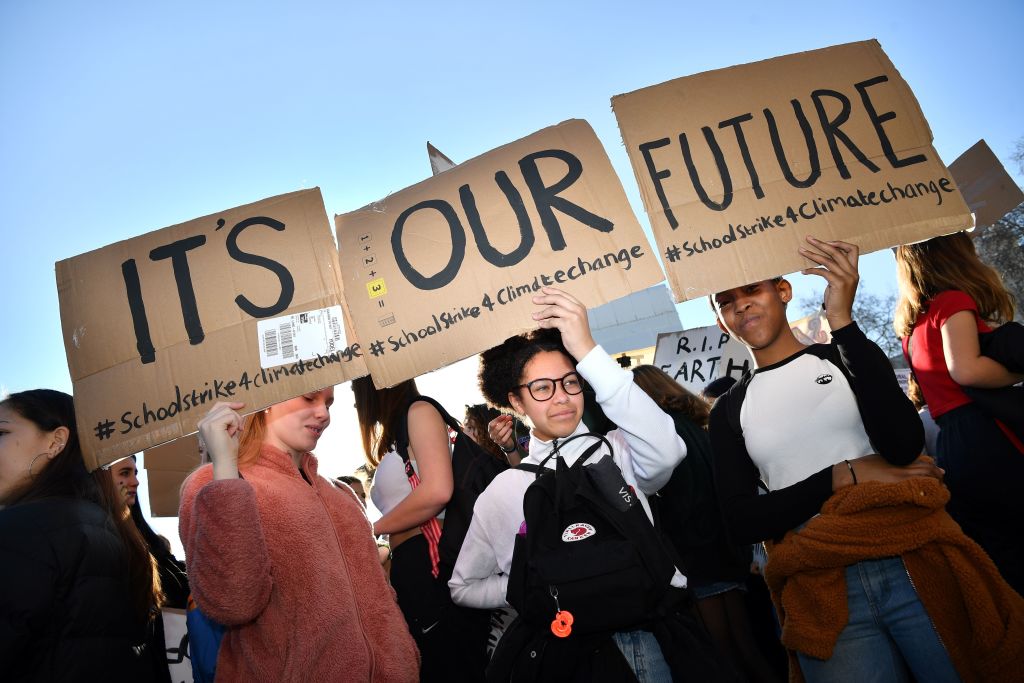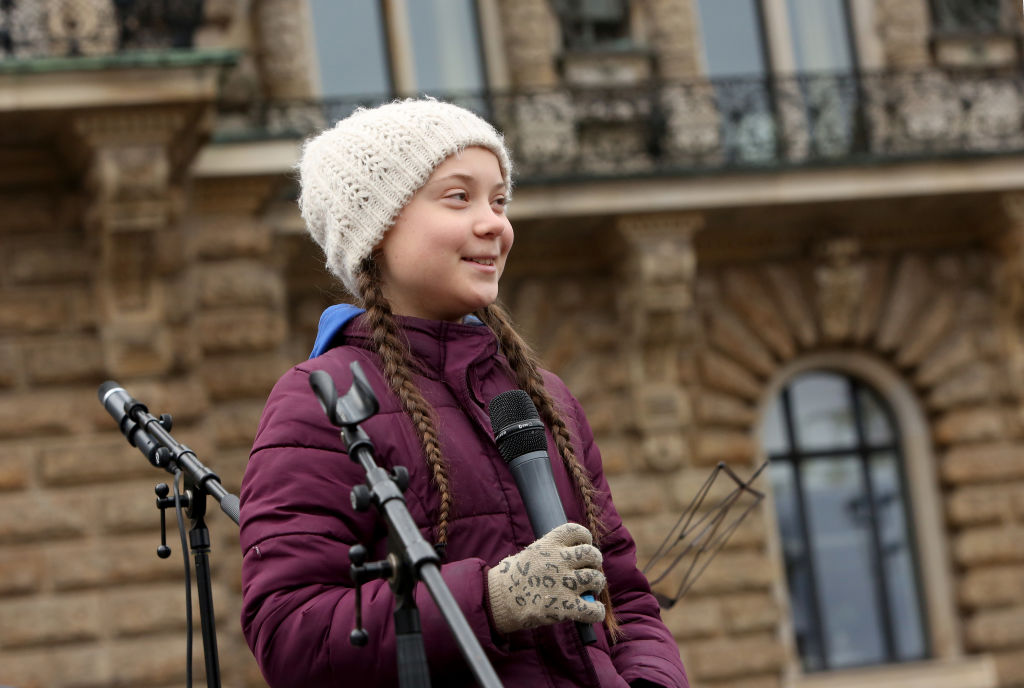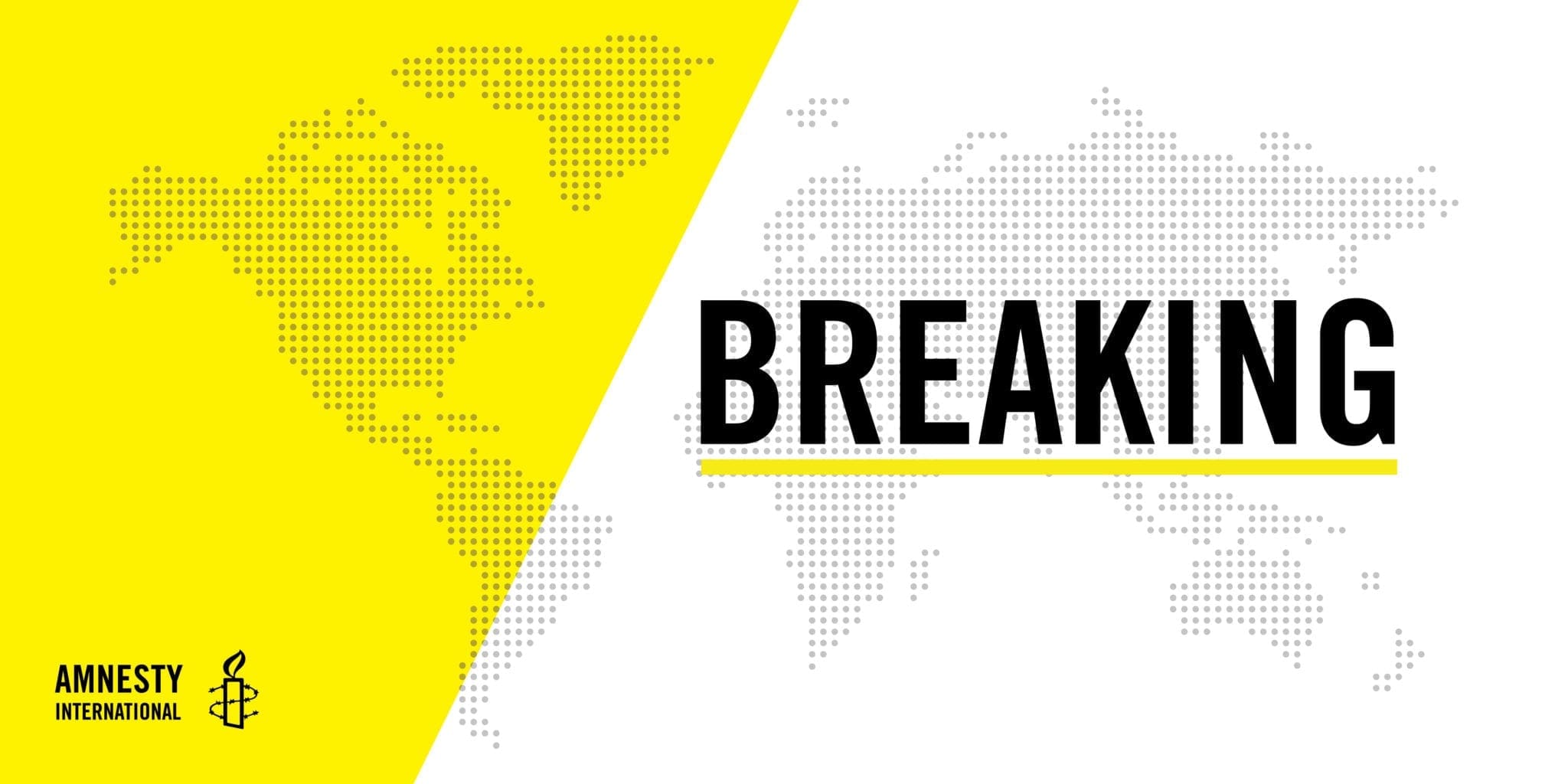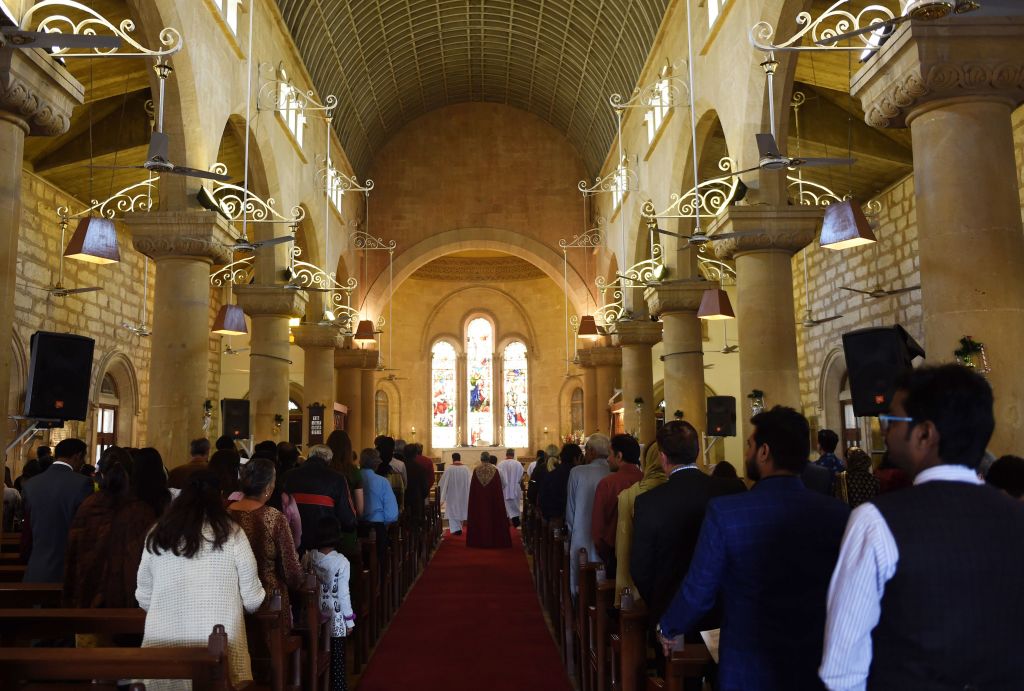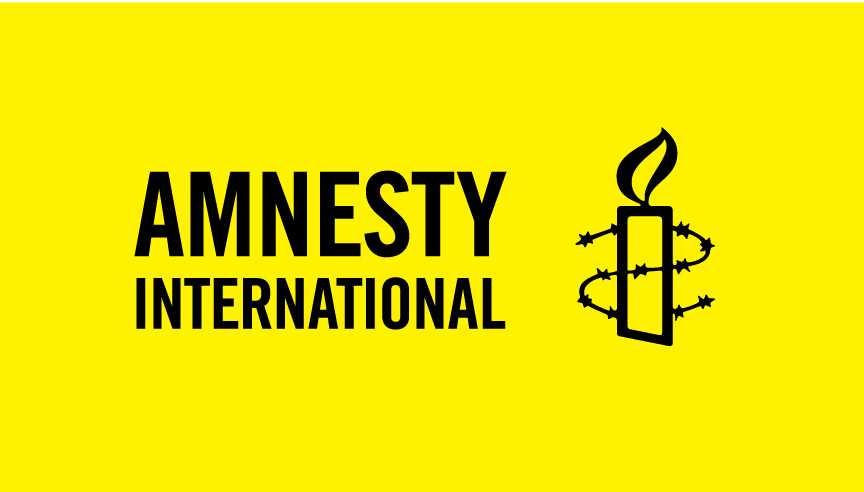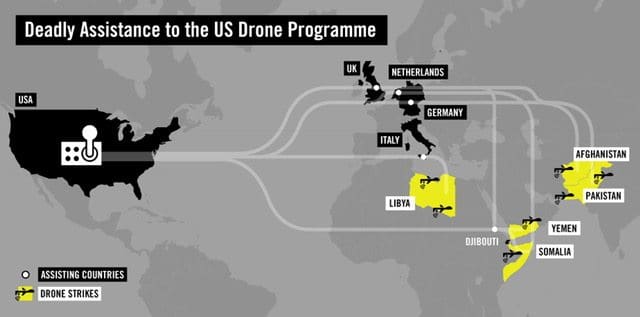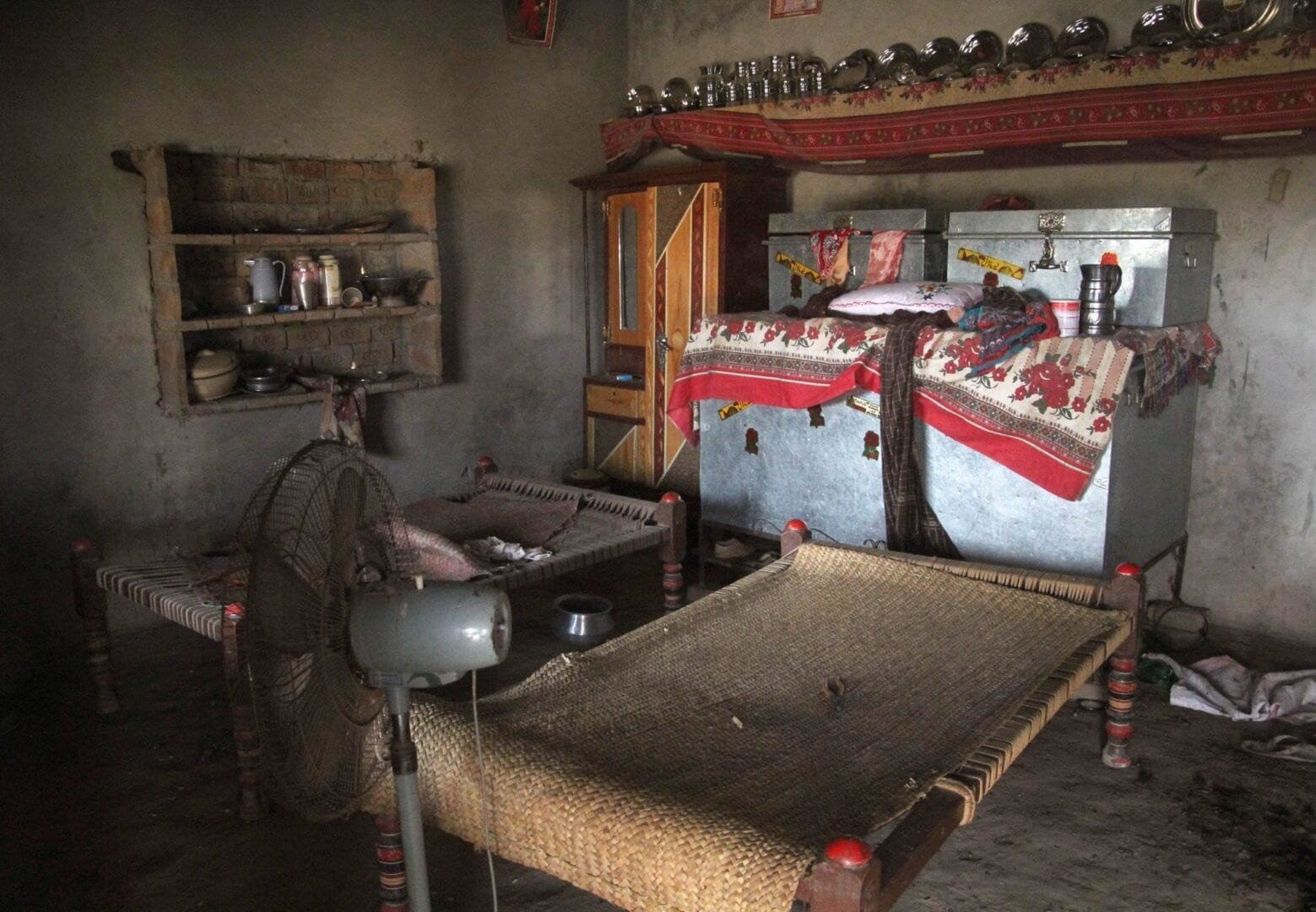PAKISTAN 2022
Grave human rights violations continued, including enforced disappearances, torture, crackdowns on peaceful protests, attacks against journalists and violence against religious minorities and other marginalized groups. A backlash against legal gains in transgender rights led to growing violence against transgender people. The senate passed an act which would criminalize torture by state officials for the first time. Political upheaval led to major uncertainty. An economic crisis severely hampered people’s economic rights. Climate change exacerbated heatwaves followed by devastating floods, which killed many and undermined a range of rights.
BACKGROUND
On 9 April, Imran Khan was ousted as prime minister after a controversial vote of no-confidence in parliament. On 11 April, parliament elected Shehbaz Sharif, leader of the Pakistan Muslim League-Nawaz (PML-N), as the new prime minister. Imran Khan and his party, the Pakistan Tehreek-e-Insaf (PTI), accused the USA and the Pakistan Democratic Movement (a loose coalition of opposition parties) of colluding to remove him, prompting weeks of political unrest during which Imran Khan’s supporters protested across the country.
The ousting was widely viewed as Imran Khan falling out of favour with the country’s all-powerful military, which was alleged to have supported the move to remove him from power. The protests continued for months, prompted by the PTI’s demand to hold snap elections. On 3 November, during a long protest march from the city of Lahore to the federal capital, Islamabad, Imran Khan survived an apparent assassination attempt. The shooting marked a pivotal point in an already tense political environment, with demonstrations taking place outside military facilities.
Between March and May, climate change wrought some of the highest recorded temperatures in Pakistan for 60 years.
1 Some of the areas worst affected were in Upper Sindh and Lower Punjab. The resulting drought was exacerbated by a deadly cholera outbreak coinciding with water scarcity in May. Flooding followed, mostly affecting the provinces of Sindh and Balochistan. More than 1,100 people died and 33 million were affected. Nearly 750,000 people were left without access to safe and adequate housing, education or health infrastructure. Large swathes of agricultural land were flooded, creating fears of a looming food shortage crisis, driving up prices. At the COP27 climate change meeting in November, Prime Minister Shehbaz Sharif said that an estimated USD 30 billion in international funding was required to compensate Pakistan for loss and damage.
Enforced disappearances
State officials continued to use enforced disappearances to target human rights defenders, journalists and people voicing criticism of the authorities. According to the Commission of Inquiry on Enforced Disappearances, as of 31 October at least 2,210 cases – likely many more – remained unresolved. Intimidation of families and victims seeking justice frequently continued for years after their loved one was forcibly disappeared.
In June, journalists Nafees Naeem and Arsalan Khan were abducted separately by the authorities; both were released after 24 hours.
2 On 28 April, Baloch student Bebagr Imdad was forcibly disappeared while visiting a friend at Punjab University in Lahore. He was released 13 days later.
For the second time in just over a year, on 21 October the National Assembly reportedly passed a bill criminalizing the practice of enforced disappearances. Media reports stated that several parliamentarians called for the removal of wording making a “false” allegation of enforced disappearance punishable by a fine and jail sentence. By the end of the year, the bill was not enacted as it had not been passed by the senate, and it had not been made available to the public.
Amnesty International documented the frequent use of enforced disappearances in the province of Balochistan. These increased following a suicide bombing at the University of Karachi on 25 April, claimed by the Balochistan Liberation Army, which killed four people. Baloch activists told the media that the state was using the attacks as an excuse to target Baloch women, activists and protesters. The media reported that two Baloch women activists had been abducted within a week. On 7 June, students Doda Ellahi and Gamshad Baloch were forcibly disappeared from their homes in Karachi. Following four days of peaceful protests they were released on 14 June.
3
Freedom of assembly
The authorities severely curtailed the right to freedom of peaceful assembly, harassing, arresting and detaining critics and political rivals as well as forcibly dispersing protests and assaulting journalists and others.
Supporters of ousted prime minister Imran Khan launched nationwide protests. Some turned violent; in Islamabad, protesters threw stones at the police, set fire to trees and damaged vehicles. Some protests were met with excessive force. On 25 May, police fired tear gas shells into peaceful protests in Lahore.
Activists and families of people forcibly disappeared held peaceful protests which were largely met with unlawful use of force, intimidation or arbitrary detention. On 13 June, the police used unlawful force to disperse protesters outside the Sindh Assembly in Karachi. One video of the incident showed uniformed police officers, some holding sticks, approaching sitting protesters. The police proceeded to violently grab men and women and drag them along the ground, before throwing or forcing protesters into police vehicles.
On 27 June, people in Karachi began protests against water and electricity shortages during the hottest summer on record. According to media reports, police used batons and tear gas to violently disperse protesters blocking a road to the port.
4
Freedom of EXPRESSION
The authorities further tightened control of the media. Media workers reported increased coercion, censorship and arrests of journalists.
On 13 April the Federal Investigation Agency (FIA) arrested eight people in the province of Punjab for allegedly organizing a smear campaign on social media against state institutions.
On 5 July, police arrested journalist Imran Riaz Khan on sedition-related charges related to criticism of the military. He was arrested under provisions of the Penal Code, including defamation, and various sections of the draconian Prevention of Electronic Crimes Act. On 7 July, a court ordered his release but the police immediately re-arrested him. On 9 July he was released on bail. He had not been brought to trial by the end of the year.
On 21 May, Shireen Mazari, a senior leader of the PTI political party, was detained by police near her home in Islamabad. She was arrested in connection with a 1972 land dispute, but her family suggested that the arrest was politically motivated due to her criticism of the government and the military. She was freed the same day on the orders of the Islamabad High Court. A case was registered against her daughter, Imaan Hazir-Mazari, for making “derogatory” statements against the army following her mother’s arrest. On 20 June, the charges against Imaan Hazir-Mazari were dropped after she issued a statement of regret.
On 1 July, unidentified men attacked Ayaz Amir, a senior analyst with Dunya News. Days earlier he had allegedly criticized Imran Khan and the military during a seminar.
In October, Arshad Sharif, a journalist and well-known supporter of Imran Khan, was killed in Kenya, where he had allegedly taken refuge after facing threats in Pakistan. A two-member government committee was tasked with investigating and in December, concluded that the killing had been a “planned assassination.”
Freedom of RELIGION AND BELIEF
Blasphemy allegations continued to spark violence against both religious minorities and Muslims. In January a woman was sentenced to death for allegedly “blasphemous” messages she sent over WhatsApp. A man was lynched to death by a group of people after being accused of burning pages of the Holy Qur’an in February in the district of Khanewal. In October, in Ghotki, a man with physical disabilities was forcibly drowned at the shrine where he lived by a visitor after being accused of blasphemy.
In September the Supreme Court issued a landmark order calling for “utmost care” by “all concerned that no injustice in the administration of justice takes place,” in recognition of the numerous due process violations in the investigation and adjudication of blasphemy cases.
Excessive use of force
Law enforcement agencies cracked down on demonstrations by the Pashtun Tahaffuz Movement, which campaigns against the racial profiling, discrimination and extrajudicial executions of Pashtuns. In April, scores of protesters were injured and at least one killed in the town of Janikhel.
In August, police used excessive force against health workers and students protesting a new qualification exam in Lahore. At least 20 of the participants were injured. During the protests, an unidentified spray was deployed by the police, which acted as a skin irritant and caused respiratory and vision difficulties.
VIOLENCE AGAINST WOMEN AND GIRLS
The Domestic Violence (Prevention and Protection) Bill (2021) was not enacted by the National Assembly, despite being passed by the senate in 2021. Several highly publicized cases highlighted the ongoing problem of violence against women.
On 24 February, Zahir Jaffer was sentenced to death for the torture, rape and murder of Noor Mukadam in 2021. Convictions were otherwise very low in cases of gender-based violence, making the guilty verdict against Zahir Jaffer significant. However, far-reaching procedural and institutional reform – not resorting to the death penalty – were still needed to tackle the endemic problem of violence against women.
TRANSGENDER PEOPLES’ RIGHTS
Despite the Transgender Rights Act of 2018, transgender people continued to face violence and discrimination. In September, Senator Mushtaq Ahmad Khan of the Islamic political party Jamat-e-Islami challenged the Act in the Federal Shariat Court, alleging that it did not conform with the injunctions of Islam under the Constitution and “promotes homosexuality”. The Council of Islamic Ideology urged the government to form a committee to review the legislation.
Transgender activists reported being targeted by social media campaigns, fuelling anti-transgender rhetoric and inciting violence and hate speech against them. They reported receiving threats, having to go into hiding and amending their day-to-day routines to avoid being targeted. Between October 2021 and September 2022, 18 transgender people were reported by the Trans Murder Monitoring Project to have been killed in Pakistan, the highest figure in Asia.
TORTURE AND OTHER ILL-TREATMENT
In October the senate passed the Torture and Custodial Death Act. The Act will, for the first time, criminalize torture by a “public official or person working in an official capacity”.
The use of torture and other ill-treatment remained routine. On 9 August, Shahbaz Gill, a senior PTI politician, was arrested in Islamabad after publicly criticizing the military. He was released on bail on 16 September. Shahbaz Gill and PTI officials alleged that he was tortured while in detention, although medical reports and government officials refuted this.
Senator Azam Khan Swati was arrested by the FIA and charged with sedition after tweeting criticism of the chief of the military. He told reporters that he was stripped and tortured, particularly near his genitals. He was released on bail before being re-arrested in November for the same tweets.
DISCRIMINATION
Forced conversions of Hindu, Christian and Sikh women and girls continued. Victims, particularly those from lower socio-economic backgrounds, were unable to access justice.
Scheduled Caste Hindus (also known as Dalits) were disproportionately disadvantaged in accessing services, resources and opportunities. Many remained trapped in bonded labour and were subjected to rape and violence. Ahmadis reported facing continued discrimination. In July, five Ahmadis were arrested for performing a ritual animal sacrifice at Eid-ul-Adha, an act allowed only for Muslims. In the same month the Punjab chief minister announced that the Punjab provincial government would add a mandatory condition that a bride and groom must swear that the Prophet Muhammad is the final prophet in order to obtain a marriage certificate. This was especially discriminatory towards Ahmadis.

